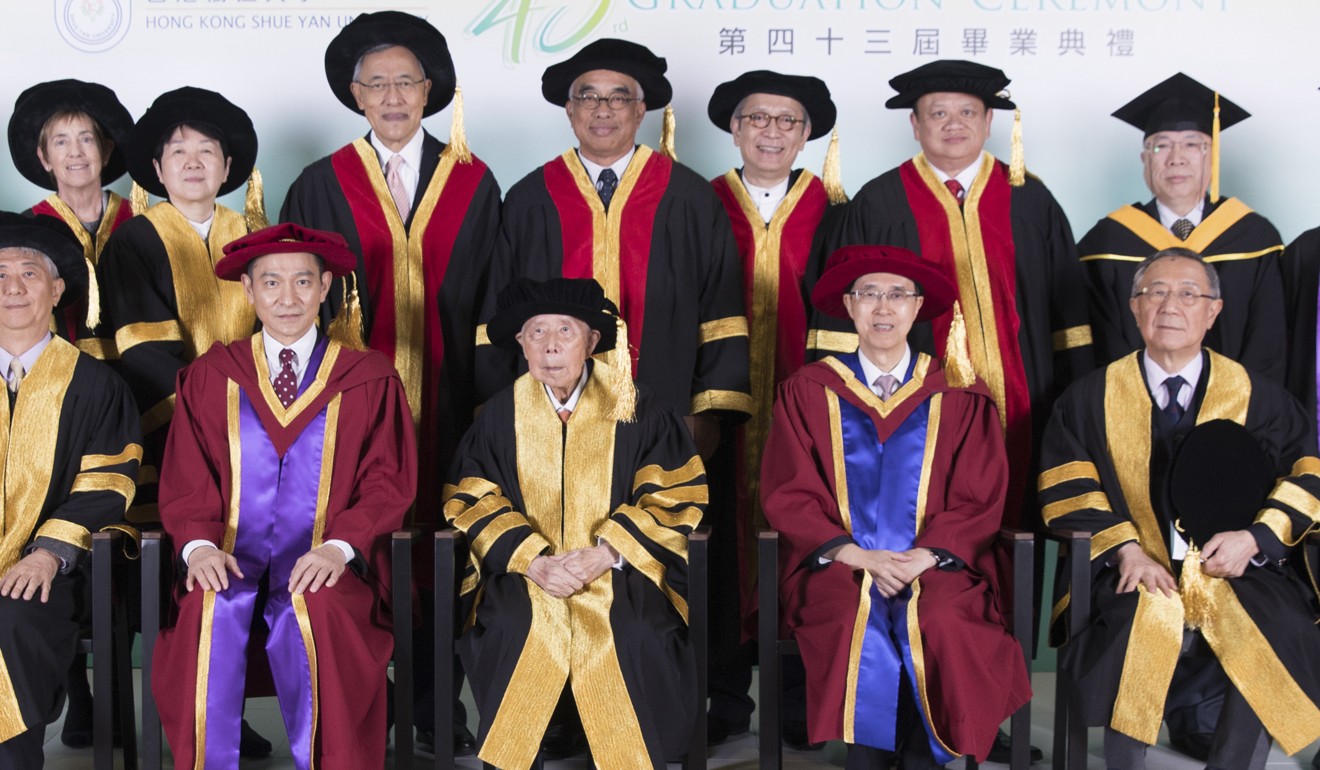
Top Hong Kong judge aired doubts about all-important lawyers’ exam – while chairing panel on its future
Patrick Chan said there was variation between schools offering postgraduate certificate in laws, which anyone who wants to practise as a solicitor or barrister must pass
A top judge voiced rare criticism of Hong Kong’s all-important lawyers’ qualification, it has been revealed, even while chairing a high-powered panel on the future of legal education.
Patrick Chan Siu-oi, a non-permanent judge on the Court of Final Appeal, aired his backing of the Law Society’s controversial push for a unified exam, and even suggested a wider pool of local universities could provide the professional qualification.
Any graduate looking to practise as a solicitor or barrister has to complete a one-year postgraduate certificate in laws (PCLL) course, taught by the law schools of the University of Hong Kong, Chinese University and City University. As of 2016, the three schools provided about 780 PCLL places in total.
Before stepping down in August last year, Chan chaired the Standing Committee on Legal Education and Training (SCLET), when it commissioned a consultation on legal education in mid-2015, to decide the future of the PCLL.
However, the Law Society – the professional body of the city’s solicitors – pre-empted that consultation by announcing in January 2016 it would implement a new Common Entrance Exam (CEE), to come in by 2021.

The SCLET called for preparations for the new exam to be put on hold, and revealed in its final report, published in May this year, that the Law Society refused to speak to it over the idea. The Post earlier reported the new exam, later tweaked and rebranded as the Law Society Examination, could be implemented in late 2019.
After an interview with an SCLET consultation group in December 2015, Justice Chan, still the committee’s chairman, filed two written submissions in January and February 2016. He criticised current PCLL admissions by three law schools, saying they lacked “reliable, objective, fair and transparent” criteria for admissions, since grades and honours varied between schools and courses.
He said this variation, along with a shortage of PCLL places, meant many law students “will be shut out from pursuing a legal career once they have been rejected admission” at the first attempt. He called it “unrealistic to turn a blind eye to these problems and difficulties”.
If there were just tonnes of institutes teaching [the PCLL], there would just be no way to monitor their quality of teaching
Despite stern opposition from law schools and the Bar Association, which represents local barristers, Chan said he supported the CEE and defended the Law Society, saying it had a duty to be concerned about the quality of the industry.
He even suggested there was “strictly speaking no restriction on the number of PCLL places”.
“If the three law schools have difficulty in expanding their PCLL courses, it may be worthwhile considering inviting other local universities to provide more PCLL places on condition their courses could also meet the requirement and standards of the legal profession,” he said.
A spokesman for the SCLET said Chan’s interview and written submissions covered his personal views and "not made known to SCLET or discussed at the meetings of SCLET”. He said the consultants invited all members of the committee to attend interviews and make submissions.
Law schools had been sceptical that the legal market could absorb more PCLL graduates, according to responses they gave to the SCLET in May 2016. Chinese University’s law faculty warned it would be in “no one’s interest” to widen admissions, and could even cause “resentment” from students if there were an oversupply of graduates, especially as law students are reluctant to work outside the legal field.
‘Undesirable’ for court to define anthem insults: Law Society on Legco bill
They also said there was no evidence of varying standards between schools, particularly as the Law Society and the Bar Association sat on the examination and curriculum board for each school’s PCLL.
The Bar Association’s representative on the SCLET, Edward Chan King-sang, said he noted Patrick Chan was “rather sympathetic” to a unified qualifying exam, but said the top judge was entitled to his view.
However, he said he could not agree with extending the exam to other universities, as that could affect teaching quality.
“Professional groups may easily assist the three universities [in monitoring teaching], regardless of whether they have 10 students or 100 students,” Edward Chan said. “If there were just tonnes of institutes teaching [the PCLL], there would just be no way to monitor their quality of teaching.”

